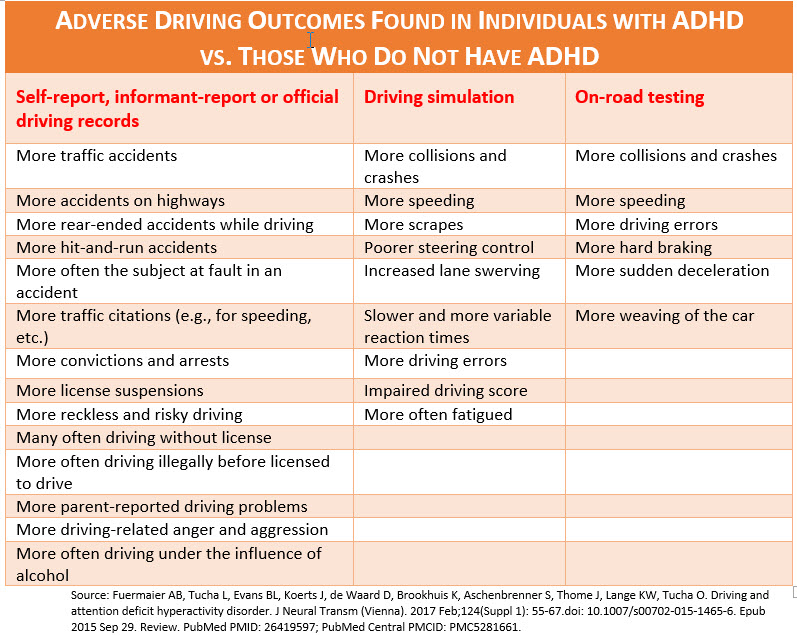Learning to drive and getting a driver's license are exciting milestones for teens. However, having a new driver in the family can be worrisome, especially for parents of teens with
attention-deficit/hyperactivity disorder (ADHD).
Motor vehicle crashes are the leading cause of death for U.S. teens. The American Academy of Pediatrics (AAP) encourages parents to talk to new drivers about possible risks of impulsive, distracted, and unfocused driving.
Medication Effectiveness on Driving Uncertain
Medication can help teens control ADHD symptoms. However, the benefit of medication on teen driving is uncertain. Many factors affect whether ADHD medication might help. These include the time of day, how long ago the teen took medicine and how well it treats symptoms. For example, drivers are more at risk of a crash in the late afternoon and evening. This is also when a teen's ADHD medication might have worn off.
What Can Help Teens with ADHD?
Teens with ADHD might need extra behind-the-wheel training, a longer supervised driving period and medication adjustments. The AAP encourages parents to talk with their pediatrician about these matters before the teen gets his or her license.
Other things to ask about:
What to expect of teen drivers and limits parents should set.
Whether your teen would benefit from more supervised driving.
The harms of
drug and alcohol use on teen drivers who take ADHD medication.
Use of teen-parent driving contracts.
Find one here.
Use of
technology that reports driving data to parents.

Additional Information: